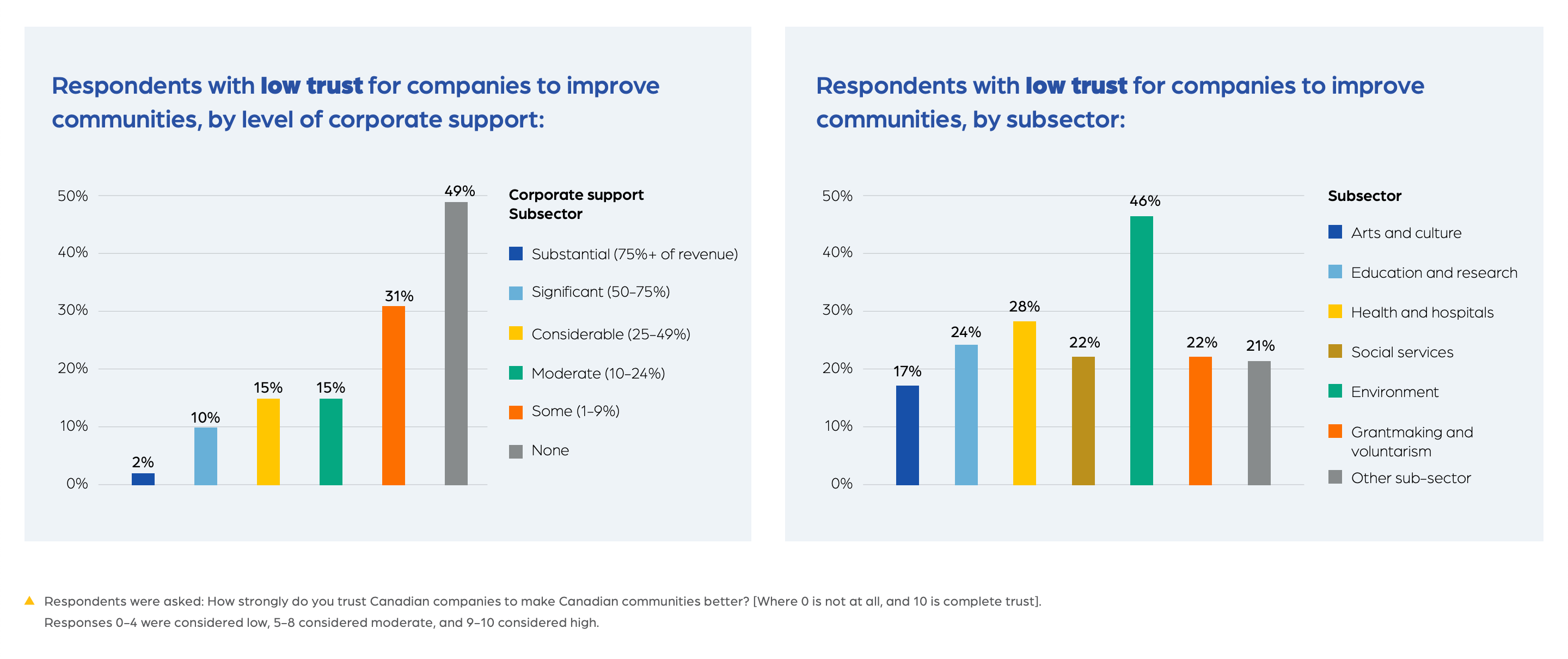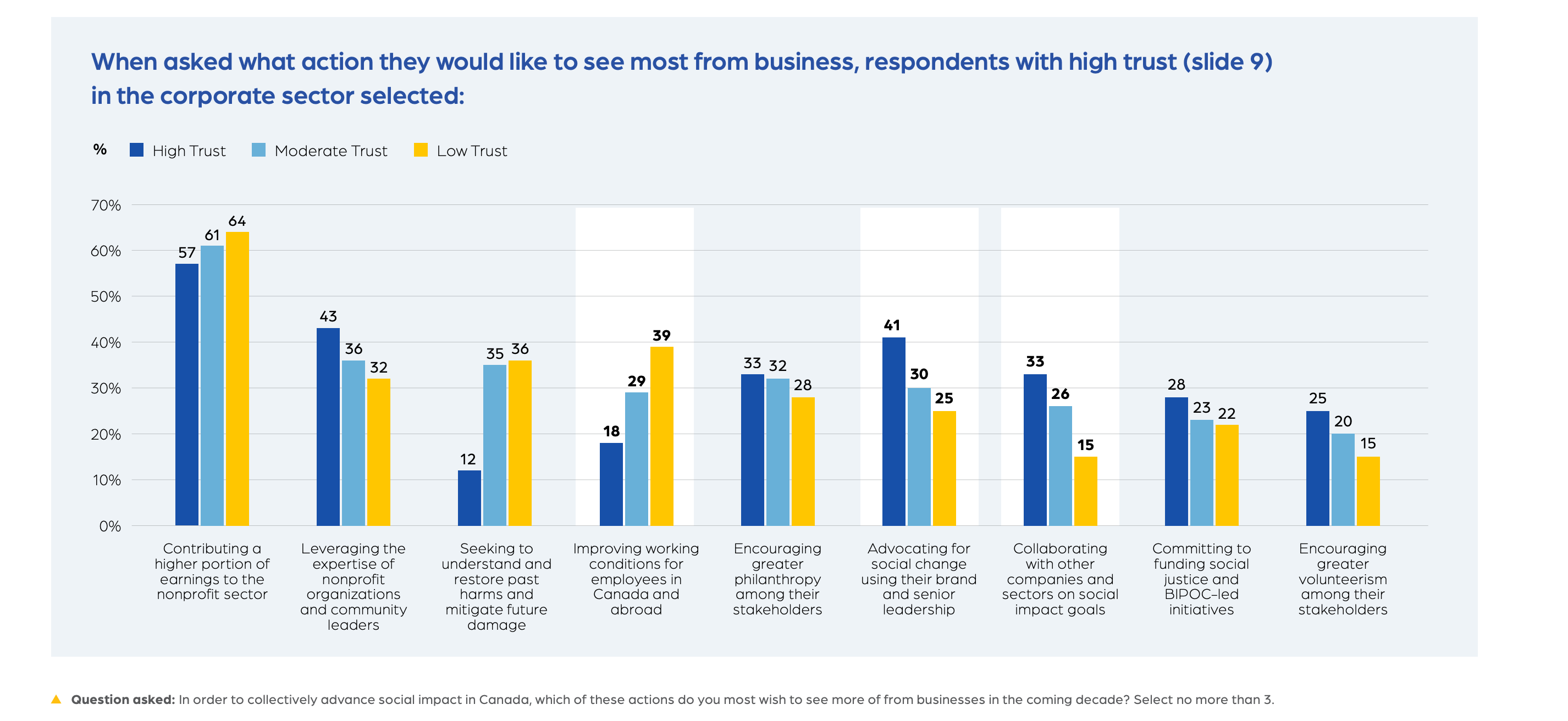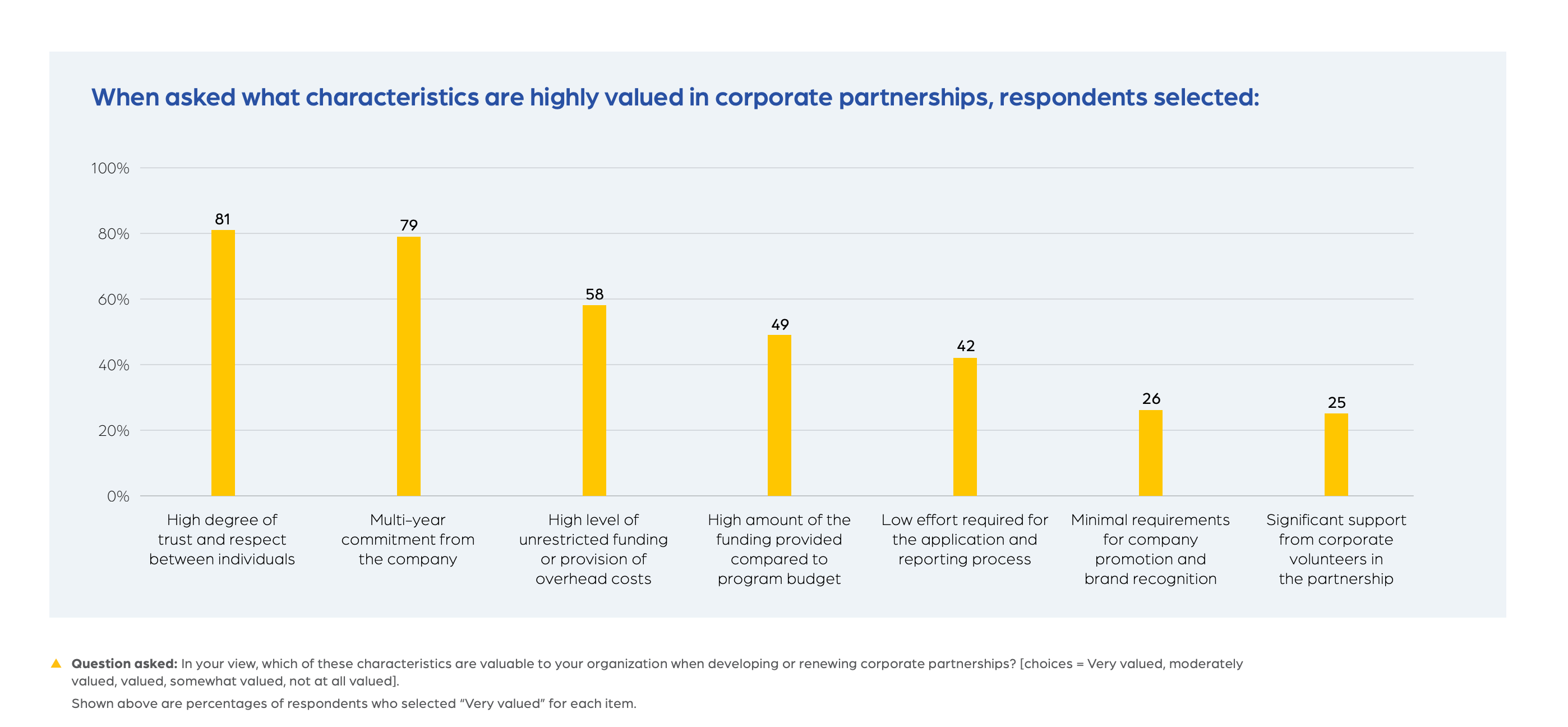How Do Nonprofits View Corporate Social Impact?
A new research report from Imagine Canada shares findings from a survey of Canadian professionals from nonprofits of varying sizes and causes. Over 900 respondents provided insight into nonprofit views and expectations on corporate social impact. Here is what companies can learn from the study – from understanding what nonprofits really need to the practical methods to cultivate effective, trust-based community partnerships.
Perceptions of the Corporate Sector
In the coming decade, the nonprofit and corporate sectors need to work together in order to address the complex challenges facing our communities. Unfortunately, the survey highlighted that trust levels in the positive impact companies can have on communities was shown to be limited, with just 6% indicating high trust, compared to 70% having moderate trust and 24% of nonprofits with low trust. This especially holds true for nonprofits with lower levels of corporate support (as a percentage of their revenue), as well as those focused on environmental causes.

The top reasons behind the lower trust are the perceptions that companies are typically driven by profit, there is a lack of commitment from businesses related to social impact, and that corporate giving is mostly short term and for the purpose of marketing and public relations. Clearly, many nonprofits feel that their expectations of corporate philanthropy are not being met. There is work to be done to overcome this lack of trust. So how can companies ensure charities and communities feel better supported?
Aspirations for the Corporate Sector
Unsurprisingly, the top action nonprofits seek is increased levels of financial contributions from businesses. This ranked consistently as the highest desire for nonprofits across varying levels of trust, all cause areas, and whether the organizations were BIPOC-led or not.
However, there were other important aspirations for companies highlighted by nonprofits. For instance, the second highest response overall was to leverage the expertise of nonprofits and community leaders more in corporate social impact work. This can be critical to accurately understanding the needs of the community and evaluating the efficacy of a philanthropic program. Additionally, nonprofits with low trust particularly wanted companies to improve working conditions for employees as well as restoring past harms and mitigating future damage.

Nonprofit Views on Corporate Partnerships
Beyond a trust-based relationship, another key factor in companies being effective partners to nonprofits is how much they understand the needs of the communities that they serve. According to the study, only 16% of respondents believe that their corporate partners have high levels of community understanding, with 62% indicating moderate understanding, and 22% indicating low community understanding.
According to nonprofit respondents, a high understanding of community needs is best demonstrated through knowledge about the community and nonprofit partners (or an effort to learn) as well as an alignment of values and mission, rather than being more concerned with the benefit to the business. Understandably, 69% of respondents report that there are companies they would not partner with, either due to conflicts of interest with their mission or worries about associated brand and reputation risks.
What Nonprofits Value in Community Partnerships
While nonprofits are interested in greater financial support from companies, when it comes to community partnerships, the two characteristics that were noted as even more significant were high degrees of trust and respect between individuals, and longer-term commitments. When it comes to income contributions, respondents reported strongly valuing unrestricted funding or provision of overhead costs in enabling them to achieve their goals.

How Companies Can Be Better Community Partners
- Focus on building and maintaining trust. This involves being transparent, consistent, and genuinely committed to social responsibility alongside profit.
- Consider multi-year commitments and support unrestricted funding. This provides nonprofits with the stability and flexibility needed to deliver on their missions.
- Promote equitable practices such as improved working conditions, prioritize giving back to communities that have been wronged, and mitigating future damage.
- Learn from nonprofits and community experts. In turn, this will allow you to engage in actions that reflect a deep understanding of community needs and challenges.
- Evaluate your community partnerships collaboratively. Invite feedback from your nonprofit partners on how the relationship and outcomes can be improved.
Bridging Perspectives Towards Impact
With 50% of nonprofit respondents surveyed anticipating future increases in corporate support, there is a major opportunity for impactful corporate-nonprofit partnerships going forward. By establishing trust and respect, considering long-term and flexible funding options, and developing deeper community understanding through learning, companies can continue to align with nonprofits on driving social good.
Interested in learning more?
Join us for our upcoming webinar on February 27th at 1-2pm ET where we will delve into the key findings of this research report in partnership with Imagine Canada.
This session aims to help you better understand and support nonprofit needs, cultivate trust-based partnerships, and align corporate actions with community impact goals. Register now!